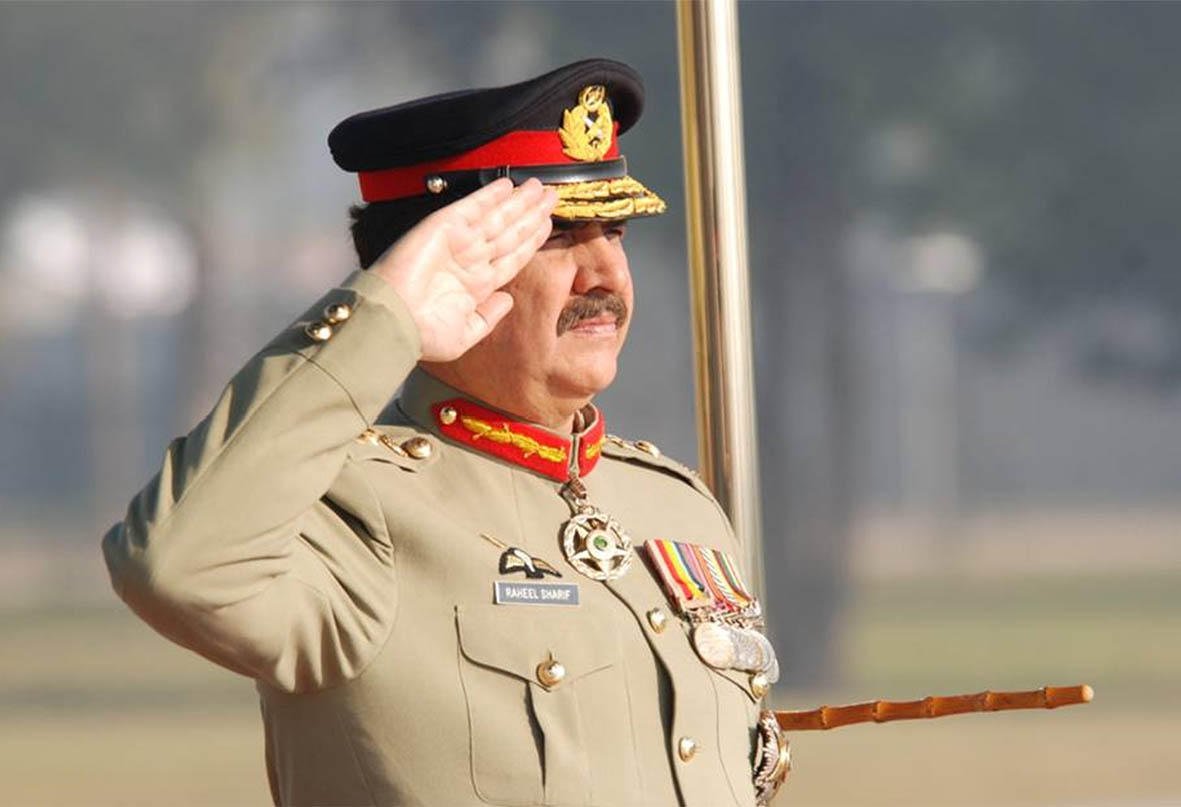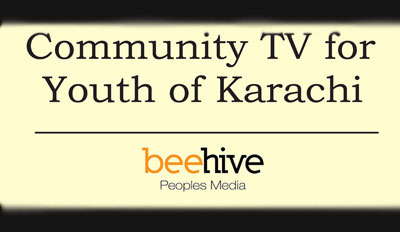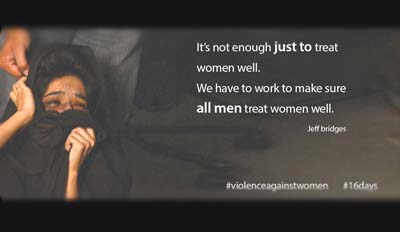The Cult of Raheel Sharif: Leader. Dictator. Saviour
By Musab K Ghouri
7 April 2016
Karachi: His elder brother called him Bobby. He loves hunting and he's bloody good at it. A heavy-voiced, moustache-clad general who’s en route to becoming the most loved Army Chief.A broad chest loaded with medals; the man in charge, the man behind the truck and the general with a plan, Raheel Shareef AKA Bobby, is becoming an unavoidable figure in Pakistan. Newsweek calls him the ''man of the year", Foreign policy magazine calls him the most "powerful person in Pakistan" and Imran Khan calls him the ''most famous personality".
The 15th Chief of Army staff is different from the previous 14. While Musharraf submitted. Zia dictated, Yahya divided and Ayub planted the coup idea, there is one thing thay all had in common; a moustache and a lack of regard for the constitution.
"People of Karachi have something to say" read a dark brown billboard with a military sign below it. It stood on a road less than a mile away from corps headquarters. ''Thank you, Raheel Sharif, for saving Karachi'', declared another. On the left corner was the picture of General Sharif showing a fist. The irony not lost in fact that the first Marshal Law administrator to show a fist to India perpetuated the events of 1965. Six years later, Pakistan lost Bangladesh. Nine generals later the chief challenged the local political power with an aim to eradicate terrorism and corruption.
Pildat reports suggest that the increase in the popularity of General Sharif is due to the successful crackdown on terrorism in the country, "The conduct of operation Zarb-eAzb, and since February 2015, the renewed vigour of Karachi operation."
It is the same Military whose off-duty soldiers in the most restive areas were advised not to wear their uniform in public. The same post of the four-star general who has successfully initiated 3 military coups. It was hard to imagine that the same soldier will be hailed in public and that the Chief will enter the colorful world of truck art. Surely, the general has improved the public perception about the military.
Six months after the operation, Karachi looks better administered. Crime has drastically decreased, target killing and sectarian violence, not to mention extortion have also been minimized. The majority of the public is not sure what the plan is, but they assume they will not be taken back to the barracks.
ISPR'S Mission Civilise
With strict control over private media, ISPR made sure that nationalist programs are aired and anything that bashed the military is suppressed. In a live transmission where the prominent journalist Najam Sethi was discussing the controversy related to the killing of Sabeen Mehmood. The 38-minute show was muted 4 times whenever he talked about the ‘ISI’. Apart from that, the military public relations wing pressurized PEMRA to restrict media channels from broadcasting controversial statements. Altaf Hussain was subsequently banned by PEMRA after he made remarks against the DG ISI, calling Karachi operation as "cleansing of Urdu speaking community.""The Army narrative hasn't changed and the government is not powerful enough to a make decision, so it's Rawalpindi calling the shots right now, not Islamabad"
Senior Editor The News, Talat Aslam
Senior editor of The News, Talat Aslam, believes that the "Army narrative hasn't changed" and the government is not powerful enough to make decision. So, "It's Rawalpindi calling the shots right now, not Islamabad." He believes that the politicians are supposed to make the decisions ''the military has never solved any problems they make it worse'' he stated. The editor gave an example of Musharraf's rule where by the end of it Balochistan was ready for a split because of the killing of Akbar Bugti.There was once an 'Alpha Bravo Charlie' era, which was sadly, short lived. Possibly in light of the fact that the general population wasn't really intrigued by the account of the same military which started to overthrow the government and revoke the constitution. Lately, ISPR takes its public connection wing to an entirely new level. In the five years alone, ISPR has produced various documentaries, melodies, feature films, tv shows and so forth.
Hail the General
Eight days after the APS attack in which 130 innocent lives were taken PM Shareef passed the National action plan and called it as "a defining moment for Pakistan."The plan took some tough decisions. Some believe it was drafted in Rawalpindi and only brought inside the PM house to be signed like operation Zarb-e-Azb which was also the brainchild of Gen Sharif. The 20 points bill gave more power to intelligence agencies, seized banned outfit funding, the establishment of military court etc. In the first few months 55,000 Afghan refugees were expelled, 128 terrorists were hanged and numerous accounts were frozen which were used to tunnel Rs 10.2 billion in cash to terror suspects. The operations were directly controlled by the corpse commander of respectable provinces and were run by Bobby himself.
Military's Stick
A military coup has its own unique features. In Pakistan, it comes with a sugar quoted wrap with a green ribbon. Inside the wrap are strict rules, but this isn't martial law. As some left-wing journalists call it, this is a soft coup. Soon after the Peshawar incident Military courts were made which a helped man in Khaki’s to hang an excused without a judicial trial. It was challenged but later implemented by the Supreme Court.The Cybercrime bill allowed PTA to ban any website that according to them goes against the ''Integrity of the state of Pakistan'' which directly breaks the article 19 of the constitution which says “Every citizen shall have the right to freedom of speech and expression..''
You turn on a cell phone or a computer and you're doomed'' These were the opening lines of a new Netflix series 'Narcos' that perfectly fit the current condition of surveillance in Pakistan. Privacy international report suggests that Pakistan is trying to build an ''NSA style surveillance system that would let it tap the phone calls and emails of hundreds of millions of people worldwide.''
The report was released just a month after a controversial leak in Supreme Court in-camera session. The ISI revealed to the bench that at least 6,523 phone numbers were tapped by ISI in February, 6,819 in March, 6,742 in April and 6,856 in May, 2015.
For a nation to gain something it needs to pay some sort of a price. Good or bad the 15th military general will rule the same way. His success proves the failure of elected representatives and people see a leader in him that was lost in the political establishment of the country. General Raheel just might be the aspirin that the nation is in desperate need of.
 \
\







